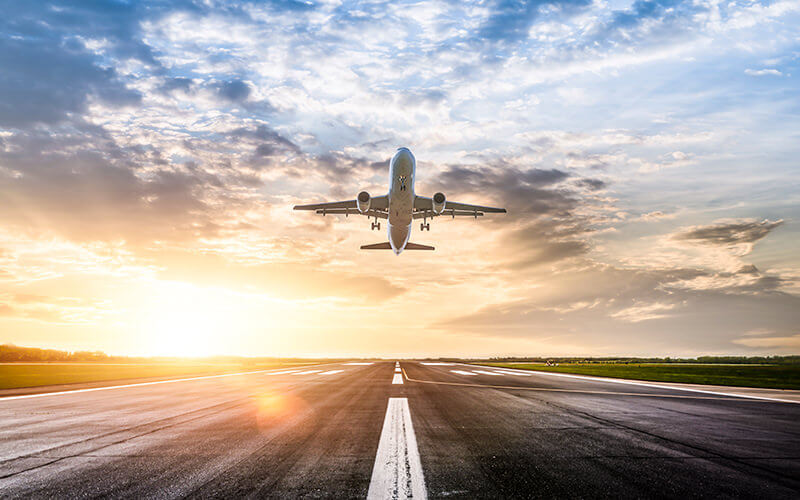The COVID-19 pandemic fundamentally reshaped global travel, accelerating digital transformation, heightening health and safety priorities, and redefining traveler values. As the industry fully recovers in 2025, four overarching themes—safety and wellness, personalization at scale, sustainable and regenerative travel, and seamless digital experiences—will define how travelers plan, book, and experience journeys.
1. Health, Safety & Well-Being as Baseline Expectations
- Integrated Health Credentials: Digital health passports have become standard. Travelers expect seamless verification of vaccination status and test results within booking apps and at every travel touchpoint.
- Contactless Everything: From touchless check-in and biometric boarding to voice-activated cabin controls, minimizing physical contact remains critical.
- Well-Being-Focused Services: Airlines and hotels now offer in-flight air-quality monitoring, UV-sanitized cabins and rooms, and wellness-oriented amenities (adaptive sleep lighting, in-room fitness gear, and on-demand telehealth support).
2. Hyper-Personalization Driven by AI & Data
- Dynamic Trip Builders: Generative AI combines traveler profiles, real-time data, and local insights to craft tailored itineraries within seconds—suggesting lesser-known attractions and adjusting recommendations as trip conditions change.
- Predictive Travel Management: Machine-learning analytics anticipate disruptions (weather, strikes) and proactively rebook accommodations, reroute flights, or arrange alternate transportation before issues impact travelers.
- Voice-First and Conversational Booking: Natural-language voice assistants handle complex requests—such as “Plan a romantic weekend in Lisbon with vegetarian dining options and sustainable tours”—and complete bookings end-to-end.
3. Sustainable & Regenerative Travel
- Carbon-Aware Journey Planning: Travelers select flight options, rail or ferry alternatives, and accommodation based on real-time carbon footprints embedded into booking platforms. Preferred itineraries prioritize lower-emission segments.
- Regenerative Tourism Experiences: Beyond minimizing impact, travelers seek opportunities to contribute positively—planting mangroves in coastal regions, supporting local conservation projects, or participating in community-led heritage restoration.
- Green Certification Transparency: Verified sustainability credentials (energy usage, waste management, community impact) for hotels, tours, and transportation providers appear prominently in search results and comparison tools.
4. Seamless, Omnichannel Digital Journeys
- Unified Travel Wallets: Centralized digital wallets store itineraries, boarding passes, train tickets, loyalty rewards, and local transit credentials—accessible across devices and shareable with family members.
- Augmented Reality Navigation: AR overlays guide travelers through complex airports, train stations, and city streets, providing turn-by-turn directions, gate changes, and cultural insights in real time.
- Edge-Powered Connectivity: Satellite-based broadband and 5G/6G integration deliver reliable, high-speed internet even in remote destinations, enabling live streaming, remote work, and IoT-driven hotel room customization.
5. Community-Driven & Experiential Travel
- Peer-Curated Micro-Experiences: Travelers book intimate local experiences—artisan workshops, home-hosted dinners, hidden-gem excursions—vetted and reviewed by micro-influencers and regional travel communities.
- Blended Live-Virtual Offerings: Hybrid experiences allow participants to join real-world tours virtually or extend in-person trips with online masterclasses, fostering global cultural exchange.
- Slow Travel Revival: The shift toward meaningful, longer stays gains momentum. Travelers embrace regional exploration by road-trip, rail journeys, or multi-week residencies, prioritizing depth over breadth.
6. New Traveler Profiles & Expectations
- Digital Nomads as Mainstream: Long-term remote-work visas proliferate. Accommodation offerings adapt with fully equipped workspace amenities, high-speed internet guarantees, and visa-support services.
- Family-Multigenerational Adventures: Families plan trips spanning multiple generations, seeking flexible lodging with private kitchens, multi-generational activity packages, and ease of booking for all age groups.
- Solo & Socially Conscious Travelers: Solo adventurers favor small-group tours emphasizing personal growth, community service, and immersive cultural learning alongside ethical wildlife and nature experiences.
Strategic Implications for Travel Businesses
- Invest in AI-Powered Platforms: Integrate generative AI for dynamic packaging, real-time personalization engines, and conversational interfaces to delight tech-savvy travelers.
- Prioritize Sustainable Partnerships: Collaborate with certified green suppliers, invest in local regenerative projects, and transparently communicate environmental impact reductions.
- Embrace Omnichannel Integration: Develop unified digital wallets, biometric identity solutions, and AR-driven mobile apps to simplify every phase of the journey.
- Enhance Wellness & Safety Infrastructure: Build touchless, air-quality–monitored spaces; offer health-focused amenities; and maintain robust contingency plans for health emergencies.
- Cultivate Community & Authenticity: Empower local experts, support micro-entrepreneurs, and facilitate traveler-to-traveler interactions to create meaningful, memorable experiences.
Travel after COVID-19 is not merely about recovery—it’s a transformational leap toward smarter, more sustainable, and deeply personalized journeys. By aligning technology innovations with evolving traveler values—health, authenticity, environmental stewardship, and seamless digital experiences—industry stakeholders can thrive in this new era of travel.
